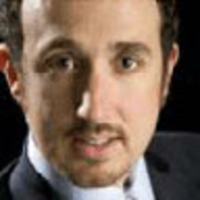
The biggest midday stock-market drop ever stemmed less from the Greek crisis than a clerical mistake. Randall Lane—author of the forthcoming book The Zeroes: My Misadventures in the Decade Wall Street Went Insane—on the ability of one trader to blow up the markets.
On Wall Street, they call it a “fat finger.” In English, it means that now, aside from Frankenstein-like derivatives and too-big-to-fail banks, a global financial panic can result from a clumsy, run-of-the-mill trader.
Sure, the headlines remain focused on Greece. Justifiably so. Even after the reports of human error popped up in the afternoon, the Dow still closed down more than 3 percent for the day. Greece remains a fiscal basket case, as well as a warning sign. Market insiders are worried that Spain is next, and that is what really has everyone on Wall Street spooked.
That’s what happens when machines control your world, and when your fate rests on whether some trader, under second-to-second pressure, clumsily types the wrong thing into those machines.
But that isn’t why yesterday’s stock charts resembled a 400-pound man going into fatal cardiac arrest. No, that responsibility falls on the fat finger, or more likely, a series of fat fingers, including one trader—believed to be from Citigroup—who apparently tried to sell $15 billion worth of stock futures, rather than $15 million. This thousand-fold mistake instantly devastated the value of American business jewels like 3M and Procter and Gamble, and took consulting firm Accenture from $40 a share to one penny in a matter of minutes, dragging the major indices down in lockstep.
Panic ensued. And make no mistake, this was real thing: heaving, shaking, palpitations. One Wall Street heavyweight who sits in the middle of a few billion dollars in daily market activity told me that he left for a late lunch, pre-fat finger, only to return to a surprising sight on his trading floor: “Everyone was white as a ghost.”
That’s what happens when machines control your world, and when your fate rests on whether some trader, under second-to-second pressure, clumsily types the wrong thing into those machines.
It wasn’t supposed to work this way. Electronic trading, which evokes images of copper wire and vacuum tubes, but is simply Wall Street-speak for computerized transactions, brought the promise of efficient pricing and democratic markets. Over the past 10 years, this shift from trading pits to screens has been the most important financial trend on the planet.
• Reihan Salam: Coming Soon—The Real Stock DisasterBut it has also brought mischief. Until this rise of the machines, trading had largely been a parochial business. Coffee traders in Chicago stuck to coffee, municipal bond traders in New York stuck to municipal bonds, and so on. It was all done human-to-human. Men (and it was almost universally men) jostled in pits, like an enormous rugby scrum, placing orders by either barking them out or using elaborate hand signals: Palms-in meant buy, palms-out meant sell, one hand’s vertical fingers represented one through five while the same fingers horizontally signaled six through 10. If some trader signaled that he was trying to sell $15 billion, the guy on the other side surely would have shot him a knowing look: Are you serious? Global crisis averted.
But computers, while powerful, can’t think like that. Which means that every trading screen, anonymously tied into almost every exchange on the planet and generally armed with access to plenty of debt, can wreak havoc on a massive international scale.
Sometimes, it’s criminal: In 2007, a young trader named Jerome Kerviel used computers to hide $7 billion in trading losses from his bosses at the giant French bank Societe Generale—the biggest financial fraud ever until Madoff came along. Sometimes, it’s merely unethical, such as the 2004 scheme by five Citigroup traders in London, which they dubbed "Operation Dr. Evil," to simultaneously short-sell $16 billion worth of government bond futures. Hidden behind their screens, no one in Europe could tell it was just one group, rather than a broad market panic, and prices collapsed—the Citigroup traders then bought the bonds cheap to cover their positions, pocketing $20 million. And sometimes, seemingly like yesterday, it’s just an honest mistake that happens to send the world’s liquidity machine into a tailspin.
We were warned about this. Unfortunately, the guy yelling loudest about the need for a human factor in trading was Dick Grasso, the former chief of the New York Stock Exchange. Most just saw his objections as a craven ploy to protect his exchange’s jobs and primacy, given that he lorded over the world’s most important trading pit—a perception that seemed pretty safe, given his infamous $140 million compensation package, and the vigor with which he defended it. Right message, wrong messenger.
But Dick Grasso turned out to have a point. As Congress nears a plan to regulate what Warren Buffett calls “financial weapons of mass destruction,” they’re missing a key element inherent to that term. Whether nuclear weapons or financial derivatives, regulating the means of mass destruction is irrelevant without an effective command-and-control system. And right now, as evidenced yesterday, we clearly don’t have one.
Perhaps it took one of the craziest trading days in the history of financial markets to serve up a reminder to those shaping the coming Wall Street reform: you can regulate derivatives, you can empower the Fed, but unless you can prevent the simple act of a fat finger from roiling the globe, it will ultimately prove to be folly.
Randall Lane is the former editor in chief of Trader Monthly, Dealmaker and P.O.V. magazines, and the former Washington bureau chief of Forbes. His book, The Zeroes: My Misadventures in the Decade Wall Street Went Insane, will be published in June.






